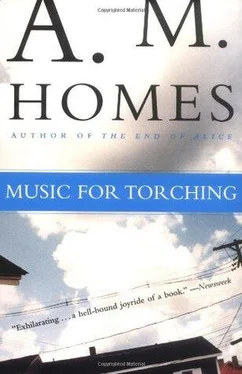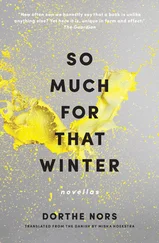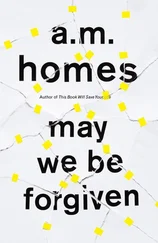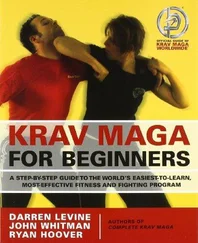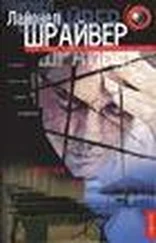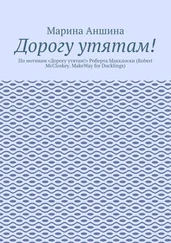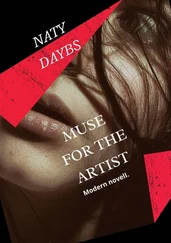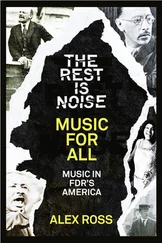"A butt plug," Pat tells her.
Elaine has heard the expression only once before-from her children. She can't imagine what it is, how it works, and where her children and Pat learned about it.
"You know what would be great?" Pat says. "If we could go away for a weekend, just the two of us, someplace where we don't have to pretend, maybe Provincetown?"
"Oh." Elaine is putting her clothes on, hurrying to leave. "I don't think this is a good time for me," she says.
Elaine pulls away quickly. The car coasts to Sammy's school as though it is not Elaine driving, but Elaine being driven, pulled on a track that takes her back and forth from Pat to Paul, Paul to Pat, here and gone. There and back.
There is the memory of Buster inside her, her womb still contracting, squeezing the hollow core, beating out blood time.
She has been fucked.
And now she is late.
Sammy's school. High windows, low desks. In every room the alphabet unfurls, A to Z hugging the wall like molding. SPRING INTO BLOOM, the bulletin board announces. Paper flowers abound. MY SUMMER PLANS: On wide-lined paper the children have scratched their dreams-camp, Grandma's, Europe.
Elaine ducks into the girls' bathroom. She towers over everything, the mirror cuts off her head. She can see herself only from chest to knees. Another mother's head pokes up over the top of a stall. They catch each other's eye and laugh.
"I feel like I'm a giraffe," the woman says, flushing.
Library. Art room. Science lab. The auditorium is also the cafeteria; the lunch tables have been put away, and a hundred metal folding chairs have been set in lines. Elaine takes a seat at the end of a row and checks out the room. To the left is Wendy Trumble, who interviews movie stars for women's magazines. She's always catching the 12:15, "running into town for a little lunch," and barely getting back in time to collect the kids from soccer practice. There are other women, halves of couples that she and Paul had dinner with once or twice long ago and then never saw again. Elaine wonders what happened. Who didn't like who? Was there something more she should have done? Ahead on the right is Claire Roth, the shrink whose kids are the same age as Elaine's. Claire, with the fancy practice in Greenwich Village, and Sam, her perfect lawyer husband who drives her to work every morning. When the Roths first moved here, Elaine had them over for a barbecue; she thought the boys might get along. They never saw them again. Claire stares at her.
"How are you?" Elaine asks.
Claire nods. Does Claire Roth even remember?
A woman up ahead is smiling. Elaine smiles back. She has no idea who she's smiling at-could that be the one Paul's fucking? The woman smiles more broadly, her braces show, and Elaine realizes that she's a friend of Jennifer's who sometimes baby-sits.
A boy comes onstage. "The Summer's Parade: A Fable," he announces. The school orchestra begins to play. "I once lived in a small village, deep in the Walnut Hills at the edge of the Honey River. It was a quiet village, until one summer when a man came to town." The curtain lifts.
"What a peaceful village," a boy wearing a beard says, shifting his big gun from one shoulder to the other. Villagers come onstage carrying baskets and hoes and begin doing chores, choreographed as dances.
Two rows up, Elaine sees Nate's mother. What's her name? Why can't Elaine ever think of her name? Elaine stares at the back of Nate's mother's head; something about her makes Elaine think she's a failure-she's the one taking care of Elaine's son when Elaine can't. She's the one who came to the door the day after the fire filled with the best intentions, good ideas. From the back of her head, she seems pleased with herself. She doesn't seem to be suffering. And she has a good haircut.
Shots are fired in the forest, the animals stampede. There is a lot of noise, animals running back and forth across the stage, through the forest, over the river, in and out of the village.
The stage clears, and a village girl-the hunter's daughter-lies dead in the rubble, and a rhino has also been shot. The hunter looks at his daughter's body. "What have I done?" he says. "I have destroyed the thing I love the most." The dying rhino lifts his head and looks out into the audience. The curtain falls.
The mothers applaud. The curtain goes up again, and the animals sing a song-"Let's all get along, every day from now
on.." The actors bow. There is more applause and then the clatter of metal chairs, folding.
"How are you?" Nate's mother asks Elaine.
"Good," Elaine shouts over the din. "And you?" She is stoned from sex.
"I barely got here," she says. "I raced from my aerobics class. If I don't go every day, I get so depressed."
What does "depressed" mean to her? She doesn't bake brownies in the afternoon, she drinks, she fucks the neighbor's wife-what? Elaine looks down at Nate's mother's little pink tennis shoes and impulsively wants to kick her. Susan, she remembers her name, Susan.
"Mom, Mom." Sammy tugs Elaine out of her trance. He's standing in front of her, holding the rhino's head.
"You were so great, honey," Elaine says. "The best rhinoceros I've ever seen."
Sammy takes a bow.
Nate arrives, still in his hunting gear. "You're dead," he says to Sammy.
"Play's over," Sammy says. "I'm living now."
"You're a very strong hunter," Elaine says to Nate.
"Natural-born killer," Nate's mother says. "He gets it from Gerald."
"Can we go home now?" Sammy asks.
"Actually, I thought I'd take them for ice cream," Nate's mother says. "If that's all right?"
"It's perfect," Elaine says, so perfect. She takes a deep breath; the auditorium air is stale, crusty with the fetid scent of half-eaten sandwiches, the curdled, sour smell of spilt milk.
"Will you join us?" Susan asks.
"Please, please," Sammy says, pulling at her sleeve.
"I can't. I have an appointment at four," Elaine says as they're walking out.
"I want to go with you," Sammy says. "I want to go home." "I'm not going home, I have an appointment. But I'll tell you a secret," Elaine says, whispering in Sammy's ear. "You'll be back in your own room very soon. And I think you'll be pleasantly surprised."
"I'm getting a banana split," Nate says.
"So am I," Sammy says.
"I'm getting two banana splits and a chocolate milk shake," Nate says.
"Me, too," Sammy says. "Whatever you get, I get, too."
Paul has been at his desk all day-painting. When he went to dump his dirty water, word spread that he was up to something. And that he was walking with a bit of a limp.
"That must have been terrible with the shrimp," his secretary says, ordering him a bowl of chicken soup for lunch. He mentions that he tried to call her about not emptying the trash can. "Oh, I was gone by then," she says, unapologetically.
Herskovitz and Wilson stop by while Paul is eating at his desk, crumbling crackers into his soup. Sheets of watercolor paper are spread out all around him.
"Doing a little OT?" Herskovitz says.
"Overtime?" Wilson asks.
"Occupational therapy," Herskovitz says. "My mother-in-law does that in her Alzheimer's day-care program."
Later, as Paul is about to go wash out his brushes and call it a day, Warburton sticks his head in. "Nice colors. May I have one? Or are they only available in a set?"
"Help yourself," Paul says, quickly zipping his pants, standing, stretching his legs.
Warburton picks the one that says "Assume Your Right." "I'm feeling the need for an inspirational slogan," he says, sitting in Paul's chair, leaning forward. "You don't want that corner office, do you?" he asks conspiratorially. "Theoretically, it could be yours. But I like to keep one office empty; it keeps the tension up, gives the boys something to aim for. There should always appear to be something to aspire to. Don't you agree?"
Читать дальше
